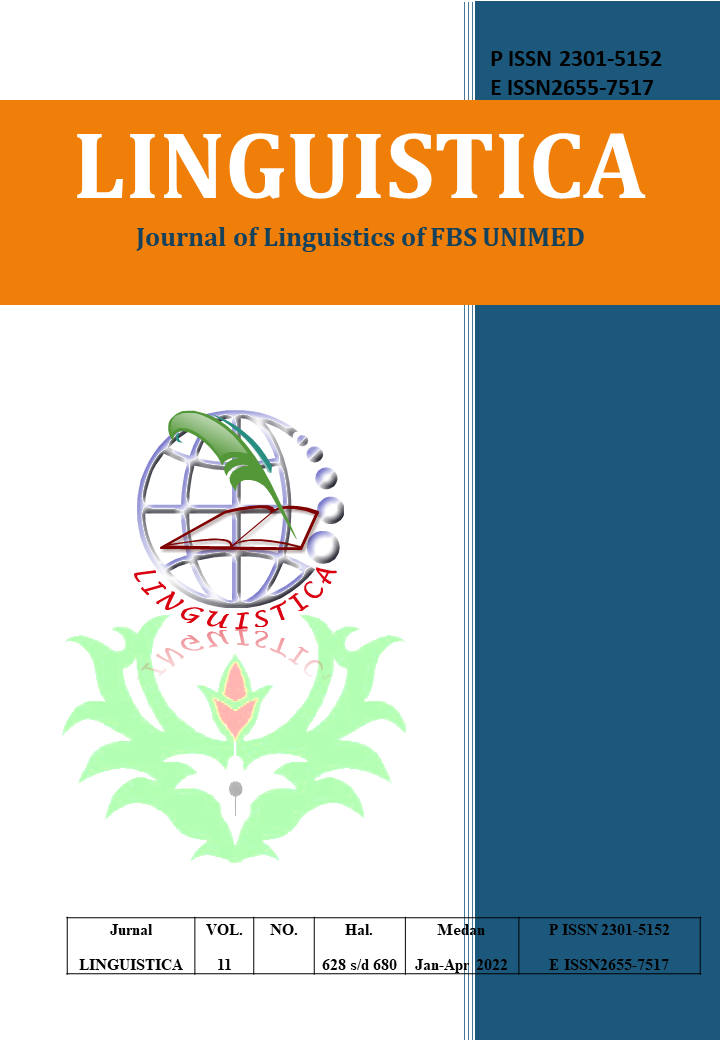ASSESSING A SCHEMATA-DESIGNED READING MATERIAL IN AN EFL CLASS: STUDENTS™ NEEDS AND TEACHER EDUCATORS™ VOICE
DOI:
https://doi.org/10.24114/jalu.v11i1.34495Abstract
This paper aims at assessing students™ needs of designed reading material for senior high school in Indonesia in improving their reading skills using schemata-based efl reading material. Designed in design-based research, this study involved EFL students and teacher educators as participants who recruited to participate voluntarily in this study. In designing the schemata-designed reading materials, the reading learning materials were revised based on the experts™ suggestions. The learning materials consist of three lessons. The first topic is about mammals. The second topic is about technology and the last is about landmarks. All of the lessons are about factual report text. The result reveals that students found their reading materials need to upgraded and teacher educators as experts™ judgment shows the designed-based reading material is categorized good.Downloads
Published
2022-05-13
How to Cite
WATI, A. E., & MISDI, M. (2022). ASSESSING A SCHEMATA-DESIGNED READING MATERIAL IN AN EFL CLASS: STUDENTS™ NEEDS AND TEACHER EDUCATORS™ VOICE. LINGUISTICA, 11(1), 664–669. https://doi.org/10.24114/jalu.v11i1.34495
Issue
Section
Articles
License
Copyright (c) 2022 AYU ENGGAR WATI, MISDI MISDI

This work is licensed under a Creative Commons Attribution-ShareAlike 4.0 International License.
Authors who publish with this journal agree to the following terms:
- Authors retain copyright and grant the journal the right of first publication with the work simultaneously licensed under a Creative Commons Attribution License that allows others to share the work with an acknowledgment of the work's authorship and initial publication in this journal.
- Authors are able to enter into separate, additional contractual arrangements for the non-exclusive distribution of the journal's published version of the work (e.g., post it to an institutional repository or publish it in a book), with an acknowledgment of its initial publication in this journal.
- Authors are permitted and encouraged to post their work online (e.g., in institutional repositories or on their website) prior to and during the submission process, as it can lead to productive exchanges, as well as earlier and greater citation of published work (See The Effect of Open Access).
- This work is licensed under a Creative Commons Attribution-ShareAlike 4.0 International License.









